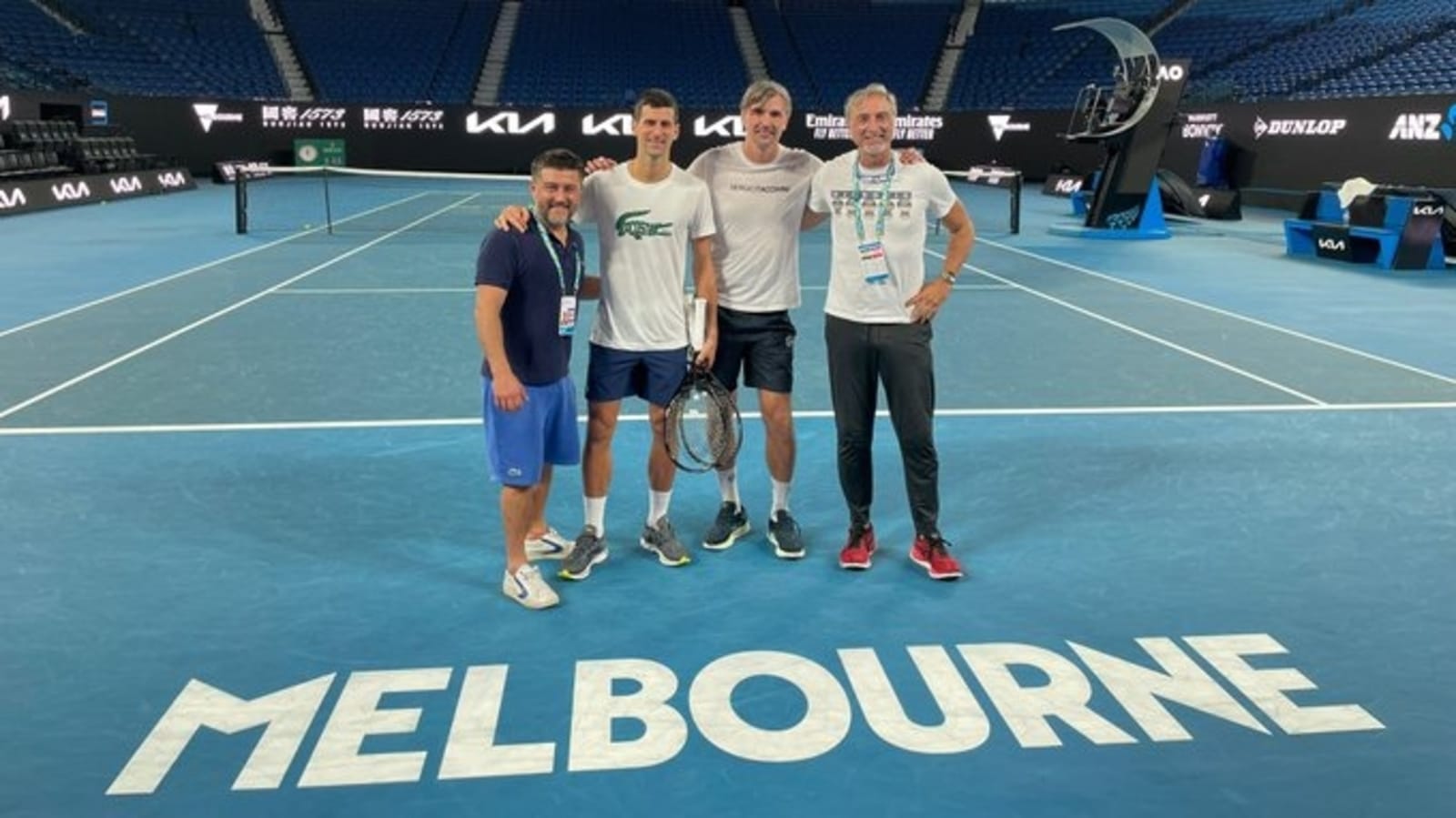Novak Djokovic wins the mother of all court battles
Novak Djokovic winning battles on court is fairly routine. On Monday evening, a victory in court was as far removed from familiar as it gets for the Serb.
In a boost to the world No 1 male tennis player’s prospects of defending his Australian Open title, Federal Circuit Court Judge Anthony Kelly quashed the Australian government’s decision to cancel Djokovic’s visa for failing to meet the vaccination and medical exemption requirements in order to enter the country. The court order termed the government’s decision as “unreasonable”, and directed that the Serb be released from the immigration detention hotel where he had been cooped up for four days.
Hours after the verdict, Djokovic tweeted a picture of him and his coaching staff at Melbourne Park, with the caption: “I’m pleased and grateful that the judge overturned my visa cancellation. Despite all that has happened, I want to stay and try to compete in the Australian Open. I remain focused on that.”
As significant and dramatic as the judgement is which allows Djokovic to remain in Australia, it still does not guarantee his participation at the Australian Open starting on January 17. Under the country’s Migration Act of 1958, the Minister for Immigration can exercise a “personal power of cancellation” that could result in Djokovic’s visa being revoked again and a possible deportation.
In the extreme scenario, the nine-time Australian Open champion could also be barred from entering the country for three years. Australian media quoted a spokesperson of Immigration Minister Alex Hawke as saying that the minister is “currently considering the matter and the process remains ongoing”.
The issue has created sporting, international and political uproar, with Australian Prime Minister Scott Morrison declaring that “no one is above rules” hours after Djokovic was stopped by the Australian Border Force (ABF) at the Melbourne airport in the intervening night of Wednesday and shifted to the detention hotel on Thursday morning. An unvaccinated Djokovic’s entry into the country to play in the Australian Open that required compulsory vaccination caused major backlash among the Australian public.
Vaccine mandate exemption
Primarily, two aspects appeared to have swung the verdict in the favour of Djokovic in Monday’s virtual hearing that was streamed live but was frequently interrupted (presumably due to the large volume of traffic). Djokovic’s legal team put forth the argument that the Serb followed every procedure that he was asked to before boarding the flight to Melbourne: since he was unvaccinated, he applied for medical exemption under the rules set by Tennis Australia and the state of Victoria. The exemption was granted by two medical panels under a criterion that allows anyone who has tested positive for Covid-19 in the last six months exemption from the vaccine mandate. Djokovic had tested positive last month, and he provided ABF officials with the evidence to support his exemption.
It led to Judge Kelly asking the question, “The point I’m somewhat agitated about is what more could this man have done?”
Nick Wood, one of Djokovic’s lawyers, replied: “To (Djokovic’s) understanding, uncontradicted, he had done absolutely everything that he understood was required in order for him to enter Australia.”
Though the exact numbers have not been revealed, at least eight other players and/or officials at the Australian Open have also been granted exemptions under this criterion.
Not enough time
The other key factor was the timing of his detention. According to the court orders, Djokovic was told at 5.20am local time on Thursday that he had time till 8.30am to provide his response to a notice of intention to cancel his visa. However, the ABF officials arrived at the decision to revoke his visa at 7.42am.
This, according to the Judge—and even the respondent (in this case, the Minister for Home Affairs) admitted—was “unreasonable”, as it did not leave Djokovic with enough time to contact the authorities concerned.
“…had the applicant been allowed until 8:30 a.m., he could have consulted others and made further submissions to the delegate about why his visa should not be cancelled,” the order read.
Going by the interview transcripts between Djokovic and the ABF officials at the airport that have been published, the Serb was first told about the intention to cancel his visa at 3:55am. At that time, he was told that he had 20 minutes to respond.
“So, you’re giving me legally 20 minutes to try to provide additional information that I don’t have?” Djokovic told the ABF official. “At 4 o clock in the morning? I mean you kind of put me in a very awkward position where at 4 in the morning I can’t call director of Tennis Australia, I can’t engage with anybody from the Victorian state government through Tennis Australia.”
“Bigger victory than Grand Slams”
Djokovic was not seen at the hearing, but reports stated that he was present in his lawyers’ office during its course. The eventual verdict in the evening sparked chaotic scenes outside the office, with hundreds of the Serb’s supporters gathering around a car they thought was ferrying Djokovic.
Back home in Serbia, his family too celebrated the ruling, with Djokovic’s brother Djordje describing it as a “great defeat for Australian authorities”, while his mother called it the biggest victory of her son’s career. “Bigger than all his Grand Slams,” Dijana said.
Rafael Nadal, one of Djokovic’s fiercest on-court rivals, said “that fairest thing” had happened. “Regardless of whether or not I agree on some things with Djokovic, without any doubt, justice has spoken,” Nadal told Spanish radio station Onda Cero.
For all the latest Sports News Click Here
For the latest news and updates, follow us on Google News.

